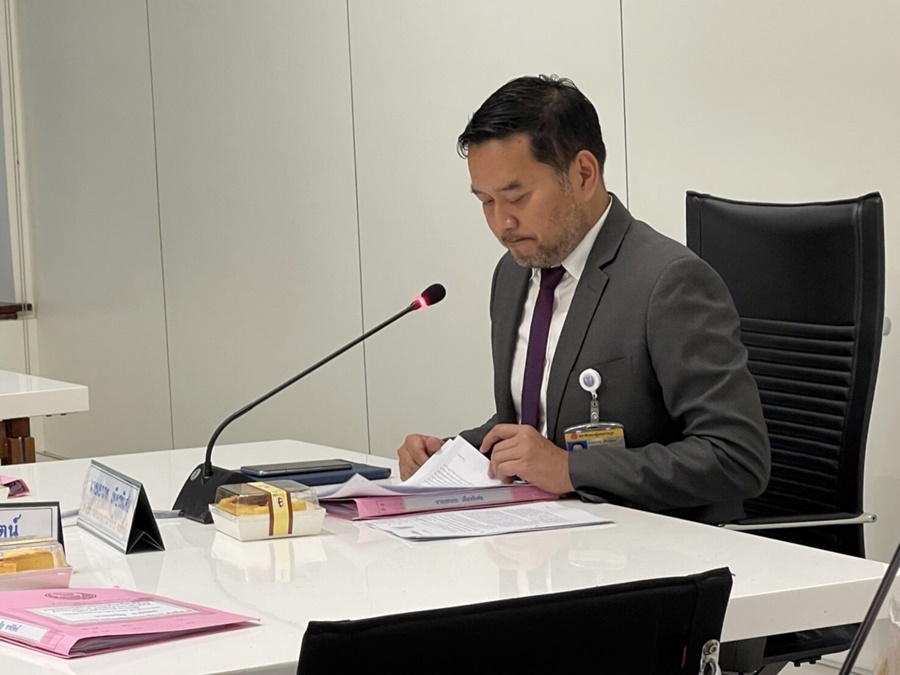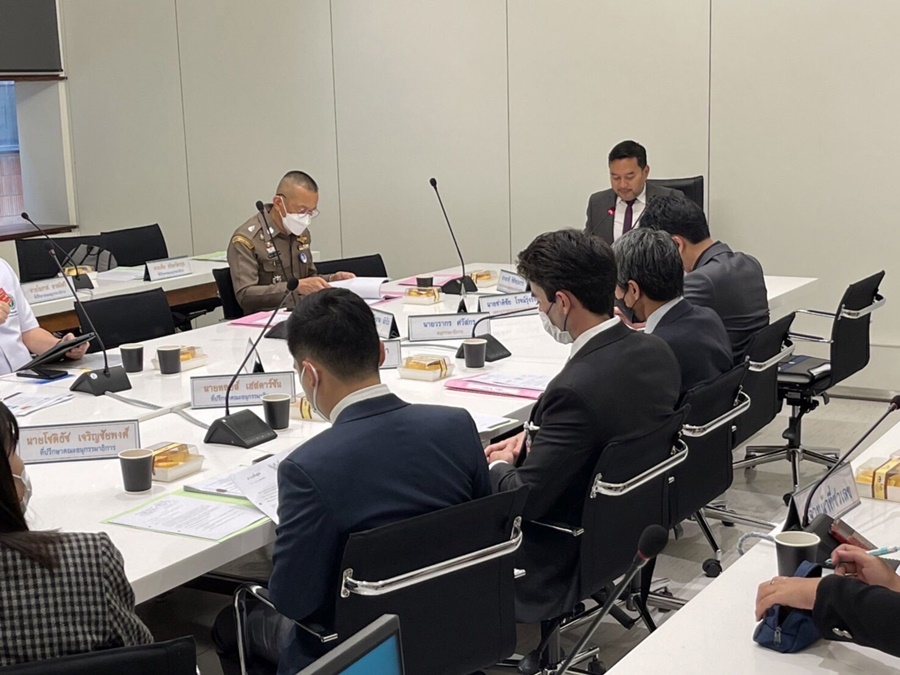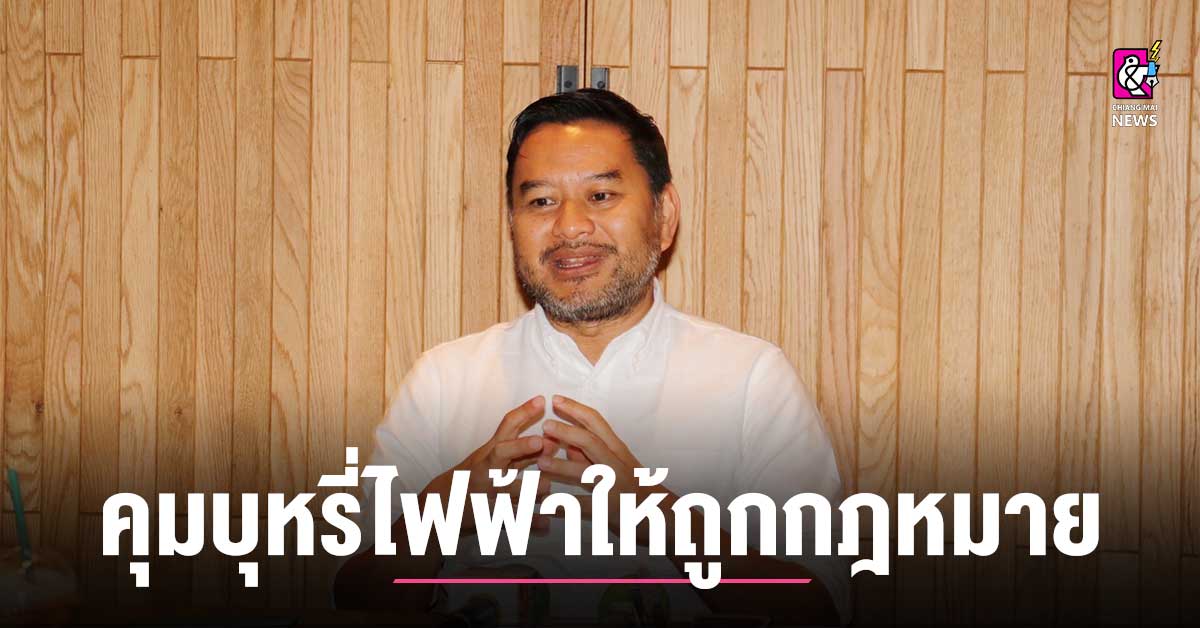กมธ. สธ. แนะคุมบุหรี่ไฟฟ้าให้ถูกกฎหมายยกระดับมาตรการเทียบชั้นนานาชาติ ลดการเสียชีวิตได้ 21,400 คนและลดค่าใช้จ่ายด้านสาธารณสุขได้กว่า 31,100 ล้านบาท
“หมอเอก” เผยรายงานคณะอนุกรรมาธิการพิจารณาศึกษาปัจจัยที่ส่งผลต่อสุขภาพและติดตามการบังคับใช้กฎหมายด้านการสาธารณสุข ในคณะกรรมาธิการการสาธารณสุขเสร็จสมบูรณ์แล้ว และได้รับความเห็นชอบจากคณะกรรมาธิการการสาธารณสุขซึ่งมี ส.ส. จากหลายกลุ่มการเมือง โดยรายงานแนะให้ยกเลิกแบนบุหรี่ไฟฟ้า ชี้กฎหมายแบนไม่สัมฤทธิ์ผล ซ้ำก่อปัญหาเพิ่มทั้งความชัดเจนของตัวกฎหมาย หน่วยงานที่เกี่ยวข้องตีความไม่ตรงกัน ทำให้ผู้ใช้กลายเป็นผู้กระทำผิดอย่างไม่เป็นธรรม ก่อให้เกิดปัญหาทุจริตคอรัปชั่น และยังไม่สามารถช่วยลดปัญหาการสูบบุหรี่และไม่สามารถป้องกันการซื้อขายสินค้าให้กับเด็กและเยาวชนได้ พร้อมนำหลักการลดอันตรายมาใช้ควบคู่กับนโยบายควบคุมยาสูบปัจจุบัน ยกระดับมาตรการช่วยให้คนเลิกบุหรี่ให้ทัดเทียมนานาชาติและบรรลุเป้าหมายยุทธศาสตร์ยาสูบชาติ หลังจากพลาดเป้ามาตลอด

นายแพทย์เอกภพ เพียรพิเศษ หรือ หมอเอก อดีตสมาชิกสภาผู้แทนราษฎร จ. เชียงรายและโฆษกคณะกรรมาธิการสารณสุข สภาผู้แทนราษฎร ให้ข้อมูลกับผู้สื่อข่าวถึงการเผยแพร่รายงานคณะอนุฯ คณะกรรมาธิการการสาธารณสุขเรื่องปัญหาการควบคุมยาสูบและบุหรี่ไฟฟ้าว่า “คณะอนุฯ เห็นว่ารัฐต้องให้ความสำคัญกับการแก้ปัญหายาสูบและลดอัตราการสูบบุหรี่ของไทยให้เร็วที่สุด แต่ติดปัญหาที่แนวทางการลดจำนวนผู้สูบบุหรี่ในปัจจุบันของไทยยังขาดประสิทธิภาพ คณะอนุฯ จึงเห็นว่ารัฐควรพิจารณานำหลักการลดอันตราย (Harm Reduction) เข้ามาใช้สนับสนุนควบคู่กับนโยบายการควบคุมยาสูบในปัจจุบัน โดยยกเลิกการห้ามนำเข้าบุหรี่ไฟฟ้าแล้วนำมาควบคุมให้ถูกต้อง ซึ่งเป็นแนวทางที่ประเทศที่มีการพัฒนาแล้วและหน่วยงานสาธารณสุขชั้นนำทั่วโลก เช่น องค์การอาหารและยา สหรัฐอเมริกา สำนักงานพัฒนาสุขภาพ ประเทศอังกฤษ สถาบันวิจัยโรคมะเร็ง ประเทศอังกฤษ หรือรัฐบาลนิวซีแลนด์ กรีซ และอีกหลายประเทศให้การยอมรับและนำมาเป็นแนวทางช่วยลดอันตรายให้กับผู้บริโภคยาสูบมากขึ้น”
ข้อมูลจากการสำรวจพฤติกรรมด้านสุขภาพของประชากร พ.ศ. 2564 ของสำนักงานสถิติแห่งชาติ พบว่าประเทศไทยมีผู้สูบบุหรี่ทั้งสิ้นประมาณ 9.9 ล้านคน (ร้อยละ 17.4) และมีผู้เจ็บป่วยและเสียชีวิตจากการสูบบุหรี่จำนวนมาก แต่อย่างไรก็ตาม ทุกวันนี้อัตราการสูบบุหรี่ของไทยไม่ลดลงอย่างมีนัยสำคัญหรือลดลงเพียงเล็กน้อยเท่านั้นเมื่อเปรียบเทียบกับปี 2550 ซึ่งขณะนั้นประเทศไทยมีจำนวนผู้สูบบุหรี่อยู่ที่ 10.8 ล้านคน อีกทั้งการแบนบุหรี่ไฟฟ้ายังทำให้เด็กละเยาวชนเข้าถึงได้ง่ายเพราะขาดการควบคุมและบังคับใช้กฎหมายอายุขั้นต่ำ การจับกุมผู้ใช้บุหรี่ไฟฟ้าอย่างไม่เป็นธรรม และการซื้อขายใต้ดินที่ทำให้รัฐบาลเสียรายได้ภาษีสรรพสามิต และภาษีอื่นๆ
“หมอเอก” ยังกล่าวต่อว่า “การยกเลิกการแบนบุหรี่ไฟฟ้าทำได้ไม่ยาก สามารถทำได้เลย เพราะปัจจุบันเราควบคุมบุหรี่ไฟฟ้าให้ถูกกฎหมายได้ตามกฎหมายที่มีอยู่ คือ พ.ร.บ. ภาษีสรรพสามิต พ.ศ. 2560 และ พ.ร.บ. ควบคุมผลิตภัณฑ์ยาสูบ พ.ศ. 2560 แต่ที่ยังติดขัดมีเสียงคัดค้านอยู่เพราะว่าเรื่องผลประโยชน์ทับซ้อนในการดำรงตำแหน่งของผู้กำหนดนโยบายที่เป็นเอ็นจีโอรณรงค์ต่อต้านการสูบบุหรี่ด้วย ซึ่งรัฐควรทบทวนการตำแหน่งของกรรมการควบคุมยาสูบแห่งชาติเหล่านี้ โดยเฉพาะอย่างยิ่งในกลุ่มผู้ทรงคุณวุฒิบางราย”
“ผู้ทรงคุณวุฒิบางรายที่มีบทบาททับซ้อนไปร่วมคณะผู้แทนไทยในการประชุมภาคีสมาชิกกรอบอนุสัญญาว่าด้วยการควบคุมยาสูบ ไปนำเสนอนโยบายและเห็นชอบเอกสารต่างๆ โดยไม่ผ่านความเห็นชอบของคณะรัฐมนตรีและรัฐสภา ทั้งที่ควรจะเป็นการทำงานร่วมกันระหว่างหน่วยงานที่เกี่ยวข้องของไทย อาทิ กระทรวงสาธารณสุข กระทรวงการคลัง เป็นต้น ดังนั้นรัฐบาลควรมีการทบทวนองค์ประกอบของคณะผู้แทนไทยก่อนการไปเข้าร่วมประชุมภาคีสมาชิกครั้งที่ 10 (COP10) ที่ประเทศปานามาด้วย ประเทศไทยจะได้มีโอกาสในการยกระดับมาตรการควบคุมยาสูบให้ทัดเทียมนานาชาติ แทนที่จะติดหล่มอยู่กับแนวคิดเดิมๆ”
“การจัดทำรายงานฉบับนี้มีการพิจารณาอย่างรอบคอบในทุกมิติทั้งด้านการสูญเสียทางสุขภาพ เศรษฐกิจ สังคม การบังคับใช้กฎหมาย และคำนึงถึงผลประโยชน์โดยรวม (net benefit) ทั้งต่อผู้สูบบุหรี่ ผู้ไม่สูบบุหรี่ และการปกป้องเด็กและเยาวชน จึงได้เชิญผู้ที่เกี่ยวข้องกว่า 100 ท่านที่เป็นตัวแทนของ 30 กลุ่ม/หน่วยงานทั้งที่เป็นฝ่ายสนับสนุนผลิตภัณฑ์ทางเลือก และฝ่ายที่ต่อต้านการสูบบุหรี่ อาทิ ตัวแทนผู้ใช้บุหรี่ไฟฟ้า ตัวแทนเกษตรกรชาวไร่ยาสูบ ผู้แทนคณะกรรมการควบคุมผลิตภัณฑ์์ยาสูบแห่งชาติ แพทย์จากราชวิทยาลัยแพทย์ สสส. หน่วยงานราชการเช่น กรมควบคุมโรค กรมสรรพสามิต กรมศุลกากร การยาสูบแห่งประเทศไทย กรมการค้าต่างประเทศ กระทรวงดิจิทัลเพื่อเศรษฐกิจและสังคม สำนัก

Committee on Public Health suggests e-cigarette regulation, upgrade related measures to international standards to help reduce deaths by 21,400 and public health expenditure of more than 31.1 billion baht
Dr. Eak (Ekkapob Pianpises) unveiled a report of the sub-committee on the Study of Impacts on Health and Monitoring the Enforcement of Public Health Related Laws under the Committee on Public Health. The report points out that the e-cigarette ban is ineffective; instead, it has led to issues in terms of the clarity of the law, which has caused unaligned interpretations of the law for relevant agencies, unfair treatment towards e-cigarette users and problems of corruption while being unable to reduce the smoking rate or prevent the sale of products to children and young people. The report suggests that the government lift the ban on e-cigarettes and apply Harm Reduction measures along with current tobacco control policies.
Dr. Ekkapob Pianpises (Dr. Eak), former MP of Chiang Rai province and spokesman of the Committee on Public Health, House of Representatives, told the press about the publication from the Public Health sub-committee on tobacco and e-cigarette control, stating: “The subcommittee deems that the government focus on solving tobacco-related problems and reducing the smoking rate in Thailand as soon as possible. However, current guidelines to help reduce the number of smokers in Thailand lack efficiency. The subcommittee, therefore, agrees that the government should consider introducing Harm Reduction measures to support the current tobacco control policies by lifting the ban on the importation of e-cigarettes and properly regulate these products. Several developed countries and leading public health agencies around the world such as the US FDA, the Health Development Agency (UK), Cancer Research UK, the New Zealand government, Greece and many other countries have accepted and adopted Harm Reduction guidelines to help reduce the harm of tobacco on consumers.”
According to data from the 2021 Health Behavior Survey of the National Statistical Office, it was found that Thailand has a total of approximately 9.9 million smokers (17.4%) and incurred a large number of patients and smoking-related deaths. However, Thailand’s smoking rate has not decreased significantly or has only slightly decreased compared to 2007, when Thailand had 10.8 million smokers. The e-cigarette ban also allows easy access for children and young people due to a lack of control and age restrictions, and also creates circumstances for the unfair arrest of e-cigarette users and underground trading, causing the government to lose revenue from excise and other relevant taxes.

Dr. Eak continued: “Lifting the ban on e-cigarettes is not difficult and can be done right away as we can regulate e-cigarettes through existing laws i.e. the Excise Tax Act B.E. 2560 (2017) and the Tobacco Products Control Act B.E. 2560 (2017). However, there are objections to e-cigarette regulation due to the conflicts of interest of some policymakers who are also involved in anti-smoking NGOs. The government should review the positions of the members of the National Tobacco Control Board, especially certain experts.”
“Some experts have a conflict of duties. Despite this, they have been part of the Thai delegation in the meetings of the WHO FCTC; they have presented policies and approved documents without any approval of the Cabinet or the National Assembly while all of that should be a collaboration between the relevant Thai agencies such as the Ministry of Public Health and Ministry of Finance etc. Therefore, the government should review the makeup of the Thai delegation before attending the 10th Conference of the Parties (COP10) in Panama for Thailand’s opportunity to upgrade tobacco control measures to be on par with international standards instead of being stuck in outdated traditional approaches.”
“This report has been conducted with prudent consideration of aspects including health, and economic and social losses in addition to law enforcement and taking into account the benefits both to smokers and non-smokers as well as the protection of children and young people. In conducting this report, more than 100 people representing 30 groups/agencies (including those that support alternative products and those that are anti-smoking) were invited to the meetings to share academic data. The groups invited were a mix of representatives of e-cigarette users, tobacco farmers, the National Tobacco Products Control Board, physicians from the Royal College of Physicians, ThaiHealth, government agencies such as the Department of Disease Control, Excise Department, Customs Department, Tobacco Authority of Thailand, Department of Foreign Trade, Ministry of Digital Economy and Society, Royal Thai Police, and Office of the Attorney General. Representatives from the UK Office for Health Improvement and Disparities (OHID) and Public Health England participated in the meeting and provided academic data. All of this effort helped create impartial content and conclusions in the report, considering all opinions from all stakeholders and it is believed that the report will help improve the smoking control policy of our country. When the new government is elected to continue with all related work, it will be able to consider applying suggestions and guidelines based on this report immediately. It is believed that such guidelines will reduce deaths by approximately 21,400 and public health expenses by more than 31.1 billion baht as well as help generate additional excise tax revenue of not less than 1 billion baht.”
The Committee on Public Health has recently submitted a report to the relevant government agencies and it is observable that Thailand is one out of only 30+ countries where e-cigarettes remain prohibited, such as India, Singapore and



ร่วมแสดงความคิดเห็น